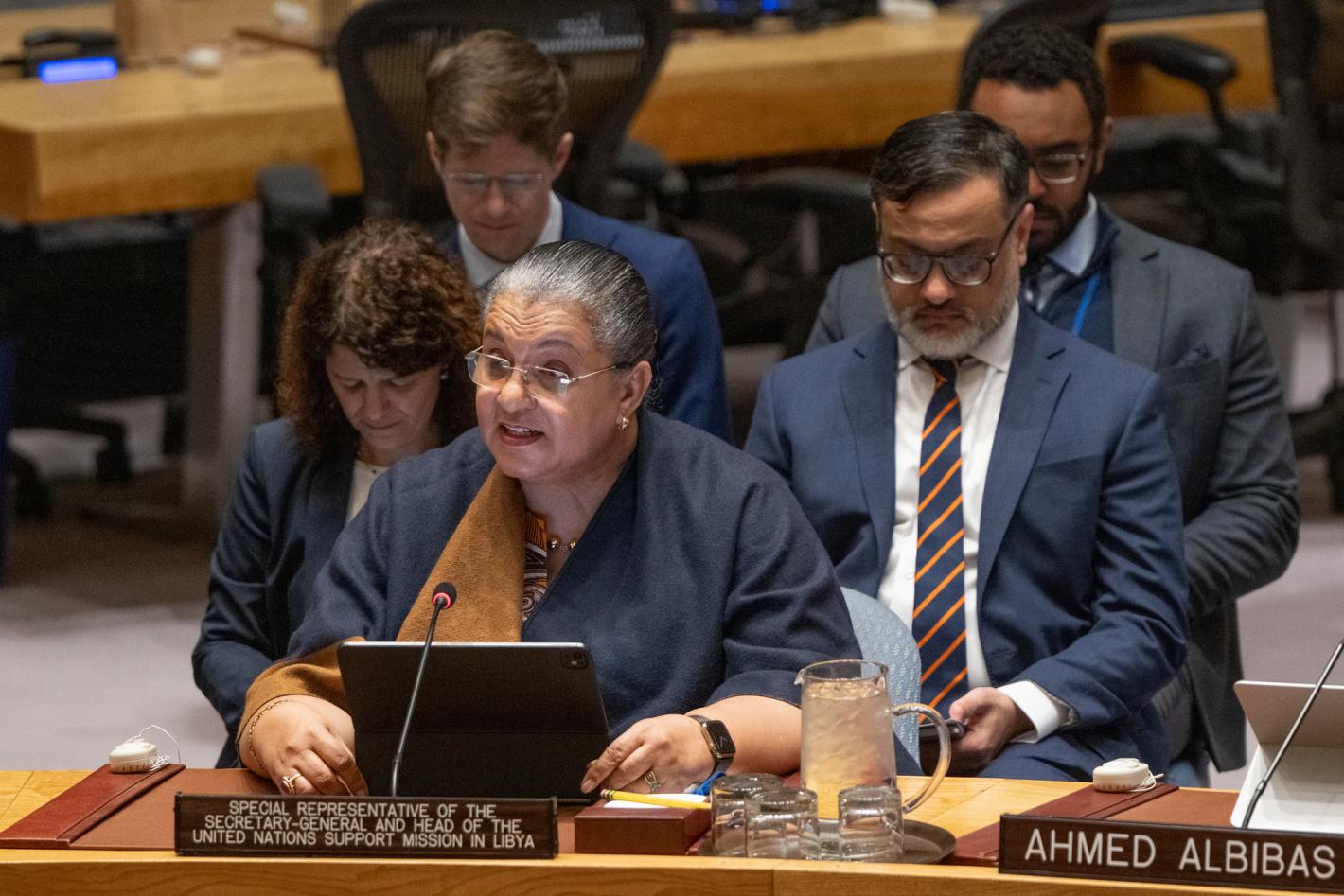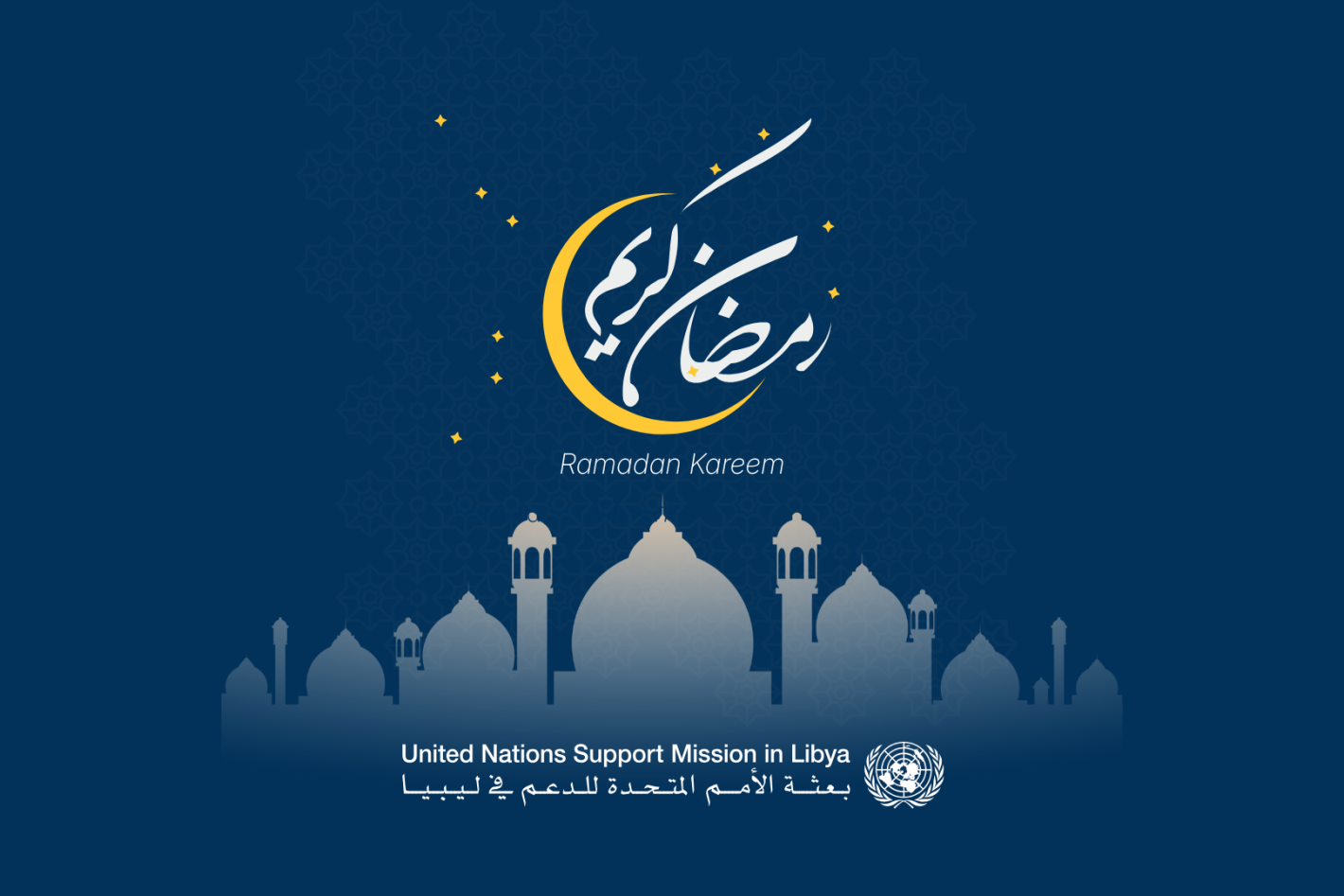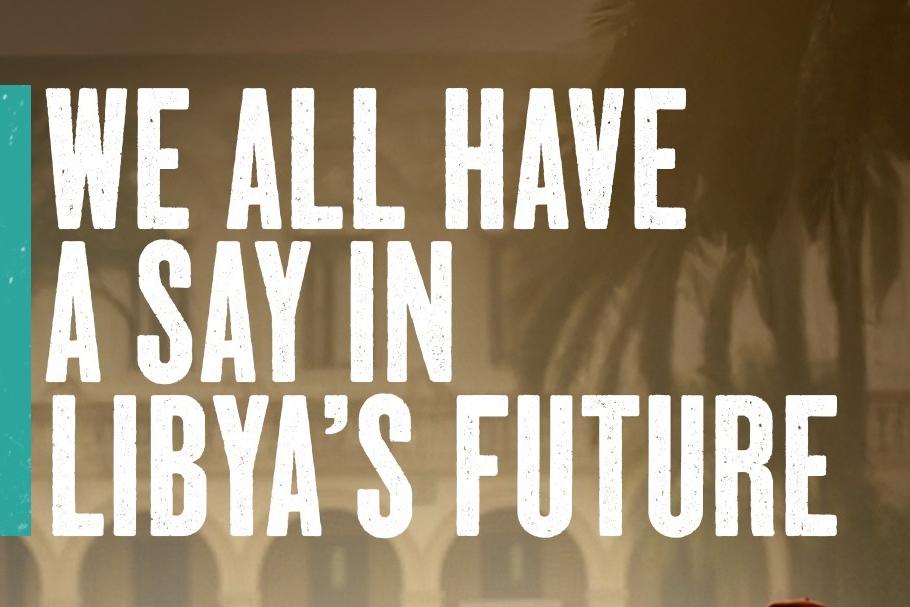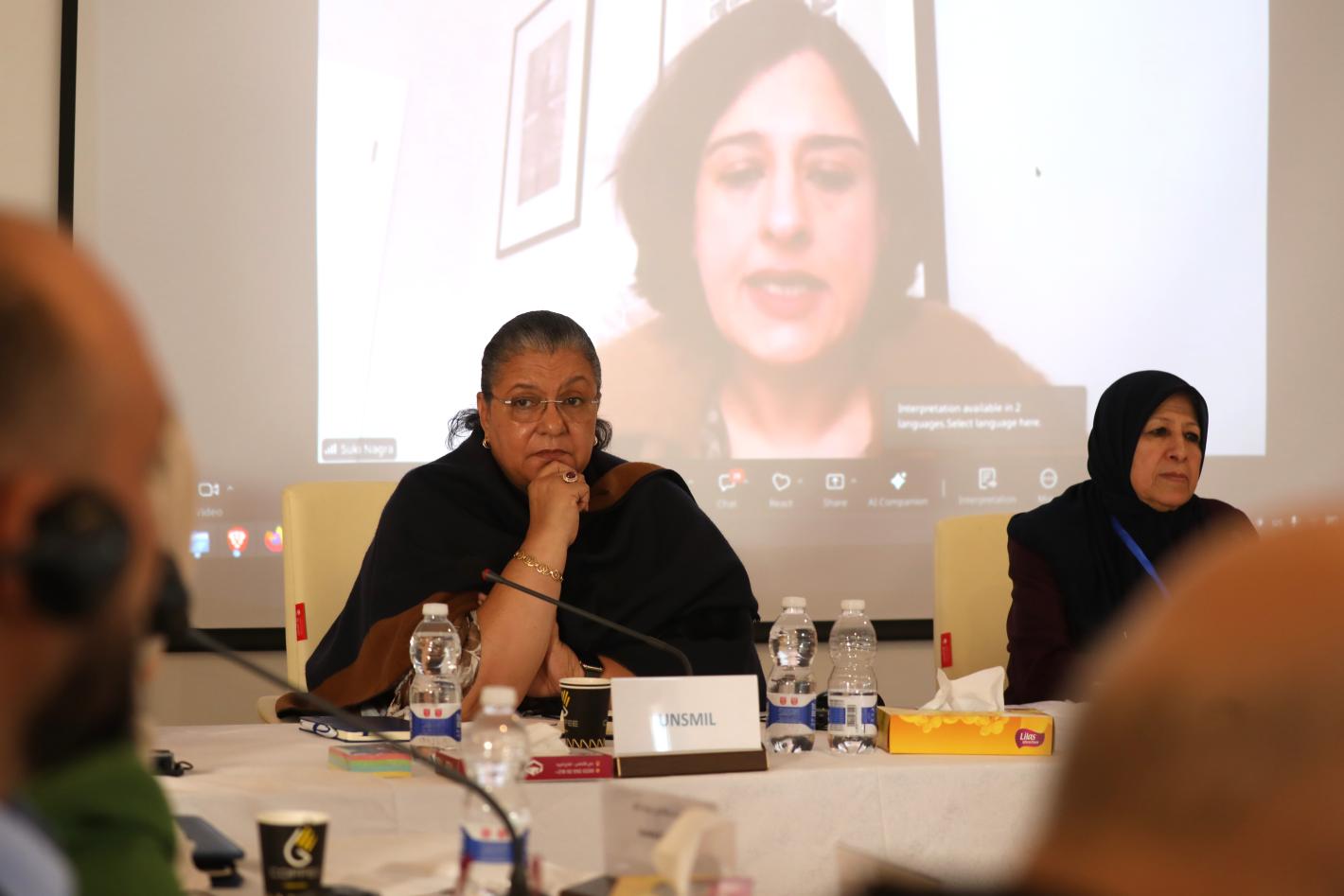TRIPOLI — To move reconciliation efforts forward in Murzuq following the 2019 conflict, which left dozens missing and thousands displaced, a group of Tebu and Ahaali tribal elders, together with local mediators and government representatives, agreed on 16 September that security conditions must be guaranteed before excavation and recovery operations can begin to bring answers to the families of the missing.
The group, which met in Tripoli with facilitation from the United Nations Support Mission in Libya, also emphasized the need to follow up with the Attorney General on the 219 arrest warrants issued in relation to crimes committed in Murzuq—none of which have been executed. Eighteen people attended the meeting.
“Without stability in our communities, there is no life,” said Mohammed Hamza, a mediator from Sebha who participated in the meeting. “Life becomes fear.”
The Presidential Council, the International Coordination Office at the Ministry of Foreign Affairs, the Ministry of Defence, the General Authority for the Search and Identification of Missing Persons, and the National Council for Civil Liberties and Human Rights were all represented at the meeting, which aimed to give stakeholders an opportunity to discuss the preliminary findings and recommendations of a forthcoming report by UNSMIL and the Office of the High Commissioner for Human Rights (OHCHR).
To support accountability efforts, the report documents and analyses enforced disappearances and other gross human rights violations and abuses committed during the Libyan National Army’s (LNA) advance toward Tripoli in 2019, which triggered a cycle of violence in the city as local communities sided with different groups. The report also includes an overview of progress on reconciliation initiatives and recommendations for sustainable peace, justice, reconciliation, and the safe return of internally displaced persons.
“This conflict has caused a huge divide between communities—and a lot of hate,” said Mohammed Amin, a mediator from Murzuq. “Conflict starts easily, with a single torch. Restoring peace is much more difficult.”
The discussion focused on recent developments in the city, particularly in relation to accountability and truth-seeking, as a follow-up to the 2022 Reconciliation Roadmap signed by both parties.
During the meeting, the General Authority for Missing Persons provided an overview of its methodology for locating and identifying the remains of missing persons, stressing its readiness to start explorations in Murzuq. While the General Authority has already taken samples from families, it needs to be supported and secured to start its work on the ground.
Establishing goodwill and building trust between stakeholders is a key step to supporting reconciliation and preventing further violence, said Fatma Al-Zahra Habrshi, a displaced activist from Murzuq — as are security arrangements to safeguard communities.
“If more attention is not dedicated to security in the city, it will always remain at high risk of new tension and conflict,” she said.
Local mediators and notables also shared updates on the number of internally displaced persons who have returned to Murzuq, which is estimated at 200 out of a total of 4,000. They then discussed with the group the most pressing needs to ensure their safe return.
The lack of accountability for the violations committed in 2019 has prevented most displaced families from returning to their homes, participants said. While they noted progress on the rebuilding of houses and infrastructure destroyed by the conflict, more is required to ensure stability and sustainable return.
Suki Nagra, director of UNSMIL’s Human Rights, Transitional Justice, and Rule of Law Service, emphasised that healing divisions in Murzuq also requires truth and accountability. The report from UNSMIL and OHCHR, which is expected to be released in 2026, aims to contribute to this goal with insights from interviews with more than 50 witnesses and consultations with victim family members from the city.
"No community can move forward while questions about the fate of the missing remain unanswered,” she said. "By shedding light on these violations, we aim to uphold the rights of victims, restore dignity to families, and support sustainable peace."






